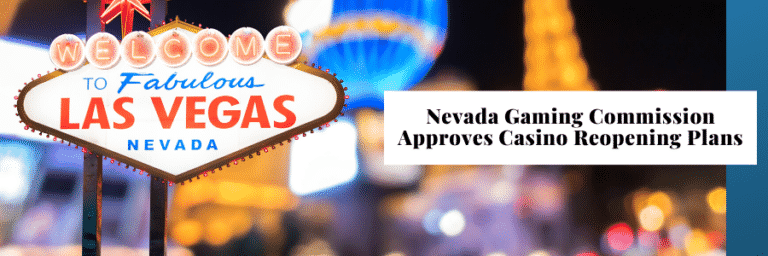Is William Hill About To Cash In On Its 100-1 US Bet?

How do you parlay a $39m bet into a $4bn-plus return? Simple. Go back to April 2011 and buy a couple of Nevada sportsbooks (and then top it up with another buyout a month later) and wait for the tides of history – in this instance, the repeal of PASPA – to roll along seven years later and watch your seed investment blossom.
Such is the history of William Hill’s involvement in US sports betting. It is doubtful that then-chief executive Ralph Topping suspected the momentousness of the buyouts of American Wagering and Cal Neva businesses in April 2011 followed by the Brandywine takeout a month later.
Fast forward to last Friday, however, and that US business is now the subject of a potentially sector-defining bidding battle.
No Shortage of Buyers for William Hill
In the hours following the announcement from William Hill that it was the subject of competing offers from private equity behemoth Apollo Global Management and gaming giant Caesars Entertainment, the shares took off, up over 43% on the day, valuing the business at over £3.2bn or $4.1bn.
Such enthusiasm might only be slightly tempered by the news on Monday that the Caesars’ bid values William Hill at £2.9bn and that the William Hill board “would be minded” to recommend the bid at that level.
Even so, such are the fireworks set off by the announcement that it lit up the rest of the UK-listed sector. GVC was up nearly 17% on the day valuing the business at £5.84bn; Flutter rose nearly 7%, pushing its market cap close to £20bn; and 888 was up over 12% valuing it at £765m.
Investors are Bullish Industry-Wide
During the summer, many in the sector were viewing the fevered speculation surrounding some key US-listed (and soon-to-be-listed) US betting and gaming stocks and wondering whether London-listed companies would be swept up in the wave.
The enthusiasm of investors – and Dave Portnoy’s trader “bros” – for DraftKings, Penn National, and the handful of other gaming-related SPACs during the summer neatly illustrated a fundamental difference in viewpoint between US and European investors.
That disconnect was always likely to come to an end at some point, given the reach of the UK-listed tentacles in the burgeoning US sports betting and online gaming sector. In this sense, we can say that Friday was the day that the wave finally broke in London.
William Hill Tagged as a “Special Situation”
“We are not surprised William Hill has generated private equity interest and interest from Caesars,” said Goodbody Stockbrokers analyst Gavin Kelleher. “It has been a stock that ourselves, amongst many others, have highlighted for some time as a special situation.”
What makes the situation of William Hill ‘special’ is the two-speed nature not only of its business but also around perceptions of its attractiveness as a proposition.
Anyone paying attention to the UK scene will know that gambling businesses are under pressure like never before. The high-street bookmakers have already seen maximum stakes on their gaming machines reduced to £2 after an effective anti-gambling campaign – a campaign that has also targeted online gambling.
The pandemic closures have accelerated William Hill’s betting shop closures with a further 189 outlets shuttered permanently. That brings the estate down to just over 1,400 shops. But while the rest of the online space benefitted from the migration to online gaming during the lockdown, William Hill posted a somewhat anemic 6% pro-forma rise on gaming net revenue in the first half.
“The William Hill online business is somewhat subscale relative to larger competitors,” says Kelleher, who suggests a new owner might look to spin-off the online business or scale it up via further M&A.
Multiple Sales?
In acknowledging this, Caesars appears willing to look into selling off or pursuing some other form of a joint venture for the UK and European side of the business.
According to Monday’s statement: “In order to best maximize those propositions and support those businesses’ long term ambitions following completion of the acquisition of William Hill, Caesars’ intention is to seek suitable partners or owners who have aligned objectives and approaches and who will be focussed on the longer-term ambitions of those businesses and for the benefit of its customers.”
Clearly, the US business is the lure. Although it represented just 7% of William Hill’s first-half revenue or £38.2m of revenue, that represents an estimated 29% of the market at present and access – through the current deal with Caesars – to 25 states should they all open up to sports betting.
Greg Johnson, an analyst with Shore Capital in London, predicted the US sports betting market could reach $20bn in the years to come, translating into an $8bn opportunity for William Hill at its current market share position.
It should be noted that a Macquarie note late last week on DraftKings suggested the market would be worth more than $33bn by 2030.
Caesars has a Head Start
It is the current arrangement with Caesars, whereby it already has a 20% stake in the US business that makes Caesars a favorite in the race.
“A deal with Caesars makes strategic sense,” said the analysts at Jefferies in a note published over the weekend. Even if Apollo won out, the analysts suggested the new owner might then structure anther transaction with Caesars to incorporate the US assets.
There are also quibbles about valuation – in the words of one source, “I wouldn’t want to be the one paying £3bn for William Hill.” But the game is maybe not really about justifying valuations, at least at present. We are now in a world where investors apparently barely blink at DraftKings trading on stratospheric multiples of prospective earnings.
The timeline of events means we will soon know some answers on the price-tag of the US sports-betting opportunity. William Hill’s representatives have been fielding offers for a month already after Apollo put in a written approach in late August. There has been one more offer from Apollo and “proposals” from Caesars subsequently.
It can be expected there will be more to-and-fro between now and the deadline of October 23rd for announcing firm intentions of a bid.
Scott Longley has been a journalist since the early noughties covering personal finance, sport and the gambling industry. He has worked for a number of publications including Investor’s Week, Bloomberg Money, Football First, EGR and GamblingCompliance.com. He now writes for online and print titles across a wide range of sectors.






